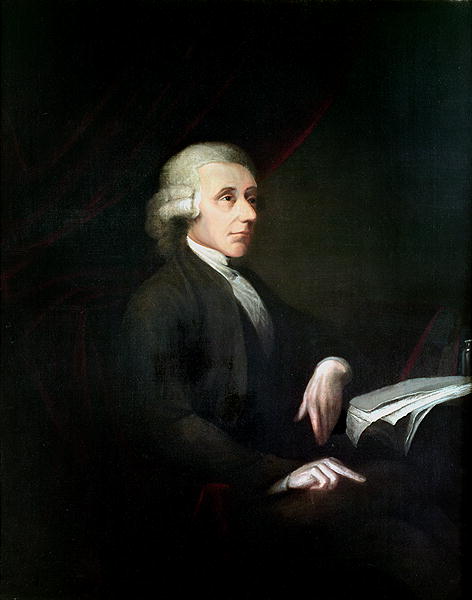by Alice Rhodes, University of York

In Spring 2022, thanks to the generous funding of the BECC and BSECS Early Career Fellowship, I spent a week in the Cadbury Research Library researching the Joseph Priestley Collection for my current project on bodies and voices in Romantic literature. The Cadbury library holds a number of manuscript letters and first edition printed texts by chemist, dissenting minister, and linguist Joseph Priestley (1733-1804) and over the course of the week these materials were able to shed light onto a topic central to my project: how eighteenth-century treatments of speech engaged with philosophical theories of materialism (the notion that everything, even seemly immaterial phenomena like life or thought, is the product of matter in motion.)
Arguing against widely held beliefs that physical matter is ‘inert’ and only immaterial spirit is ‘possessed of the powers of perception, intelligence, and self-motion’, Priestley developed a theory of ‘active matter’ which made the case for the existence of a single material substance which possesses an inherent capacity for motion and active power, specifically the powers of ‘repulsion’ or ‘resistance’ and ‘attraction’.[1] For Priestley, matter could move on its own.
And Priestley uses this materialist conviction that matter possesses active powers, as the basis for his 1777 Course of Lectures on Oratory and Criticism in which he argues for a model of ‘association’ in which physical sensation influences or stimulates, but does not directly control, the movements of the mind that constitute thought. His belief that physical movement within the external world could prompt the bodily movements of thought and speech underpins his theory of the power of oratory and he consequently describes his materialist approach to philosophy and physiology in depth ‘in order to explain facts relating to the influence of Oratory, and the striking effect of Excellencies in Composition, upon the genuine principles of human nature.’[2] For Priestley, materialism transforms descriptions of speech’s ‘influence’ and ‘striking effect’ from metaphorical to literal and as it allows him to present speech as a movement, of mind and mouth, body and sense, which has the power to physically impact or ‘strike’ the listener according to ‘genuine’ physical principles.
Moreover, Priestley argues that in oratory ‘the genuine and proper use of the passions undoubtably is to rouze men to just and vigorous action upon every emergency, without the slow intervention of reason’.[3] He presents passionate utterance as an instantaneous physical process of stimulus and response which is both ‘just’ (i.e. concerned with enacting social and political principles of justice and powerful (vigorous). Priestley’s faith in the physical power of the material voice suggests a fundamental belief in the power of elocution to stimulate not just physical, but political, action.
[1] Joseph Priestley, Disquisitions Relating to Matter and Spirit (London: J. Johnson, 1777), xxxvii-xxxviii; 46.
[2] Joseph Priestley, A Course of Lectures on Oratory and Criticism (London: J. Johnson, 1777), ii.
[3] Priestley, Oratory and Criticism, 79.
